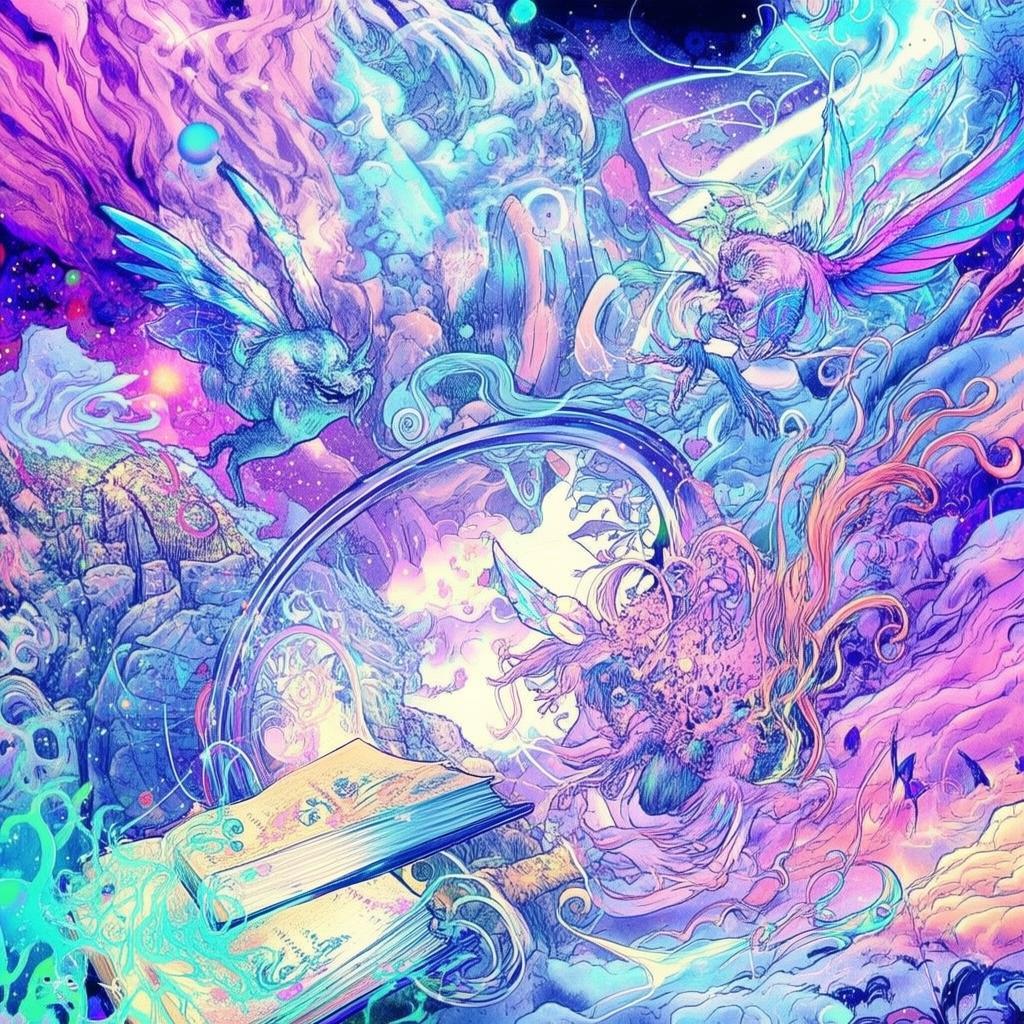Shadows of the Past: The Reckoning of Wang Liqiu
The cobblestone streets of Florence echoed with the whispers of change. The Renaissance was in full bloom, and the air was thick with the scent of innovation and the promise of enlightenment. Among the artists and thinkers, Wang Liqiu stood out, her brush a testament to the power of art to reflect and shape the human spirit.
Her latest masterpiece, "The Reckoning," was a tour de force, capturing the essence of the era's turmoil. It depicted a figure, cloaked in shadows, facing an uncertain future, a mirror to the chaos that surrounded her. The painting spoke of the past that clung to her like a ghost, and the future that beckoned with the promise of new beginnings.
As the crowd gathered to marvel at her work, Wang Liqiu felt a strange unease. The painting seemed to take on a life of its own, its message seeping into her consciousness. She realized that the shadows of her past were not just a metaphor; they were a reality she could no longer ignore.
In the days that followed, she found herself drawn to the city's oldest library, its walls lined with ancient tomes. There, she discovered the truth about her origins, a story that tied her to a family of artists and revolutionaries. It was a tale of love, betrayal, and the relentless pursuit of freedom.
Wang Liqiu learned that her ancestors had been part of a clandestine group that sought to challenge the oppressive regime of the time. They had used their art as a weapon, their brushstrokes a call to arms. But the cost had been great, and the legacy of their struggle had been lost to time.
Determined to uncover the truth and honor her ancestors' sacrifice, Wang Liqiu embarked on a journey that would take her from the streets of Florence to the courts of power. Along the way, she encountered a cast of characters, each with their own secrets and desires.
There was Giacomo, the charismatic sculptor who believed in the power of art to change the world. He saw in Wang Liqiu a kindred spirit and offered his help, but his own past was shrouded in mystery, and his intentions were not entirely clear.
Then there was Isabella, the enigmatic courtesan who seemed to know more about the secret society than anyone else. Her beauty was matched only by her cunning, and she used her allure to gain the trust of those around her.
As Wang Liqiu delved deeper into the past, she uncovered a web of intrigue and betrayal. She discovered that her own father had been a member of the society, and that his death had been no accident. The truth was a bitter pill to swallow, but it was also a catalyst for change.

The climax of her journey came when she confronted the current leader of the secret society, a man who had once been a close friend. He revealed that the society had been infiltrated by a traitor, and that Wang Liqiu's ancestors had been betrayed from within.
With this knowledge, Wang Liqiu must make a choice. She could continue to seek justice for her family's sacrifice, or she could use her newfound knowledge to bring down the corrupt leader and restore the society's integrity.
In a dramatic twist, Wang Liqiu discovered that the traitor was none other than Giacomo, who had been using his position to amass power for himself. She had to confront him, and in doing so, she had to face the truth about her own heart.
The ending of her journey was bittersweet. She avenged her ancestors' deaths, but at a great cost. Giacomo was executed, and Isabella disappeared, leaving Wang Liqiu to ponder the true nature of her own sacrifice.
In the end, Wang Liqiu realized that the true power of art was not in its ability to change the world, but in its ability to change the soul. Her painting, "The Reckoning," had become a reflection of her own inner turmoil, and it had given her the strength to face the shadows of her past.
As she stood before her latest masterpiece, Wang Liqiu felt a sense of peace. She had come full circle, and she had found her place in the world. The Renaissance was not just an era of artistic rebirth, but a time of personal enlightenment as well.
✨ Original Statement ✨
All articles published on this website (including but not limited to text, images, videos, and other content) are original or authorized for reposting and are protected by relevant laws. Without the explicit written permission of this website, no individual or organization may copy, modify, repost, or use the content for commercial purposes.
If you need to quote or cooperate, please contact this site for authorization. We reserve the right to pursue legal responsibility for any unauthorized use.
Hereby declared.









